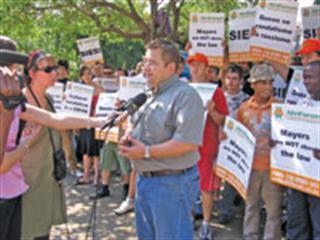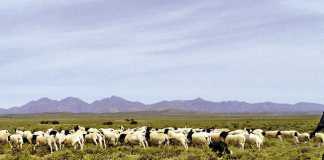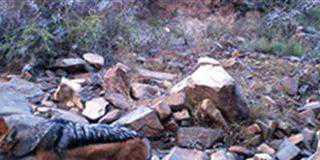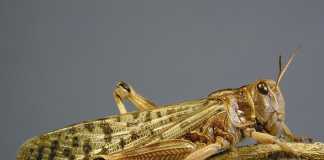
You were interviewed on Talk Radio 702 a few weeks ago and the central questions were around the state’s attitude towards farm violence, which is that farm attacks should not be seen as a unique crime deserving special attention. You disagreed. Could you expand on your reasoning?
If you look at the frequency and proportionality of farm attacks, it is an exceptional dynamic within the context of crime in South Africa. Your chances of being killed as a farmer are higher than for any other occupation, including police work, and that calls for special attention and not denial.
People see it as if we’re driving some kind of conspiracy or political agenda but the reality is it’s a major problem and only special measures will eradicate it. We have, for example, the 16 days of activism for no violence against women and children, and nobody argues that it’s unfair or irregular, because the fact of the matter is it’s targeted at a specific problem of disproportionate severity within the context of national crime.
It’s a bit of a catch-22 situation though, because to show that a specific crime needs special attention, you need sound statistics, and there have never been any stable statistics for farm attacks, so the debate goes round and round.
That’s a huge problem. We’ve realised that if we come forward with sensational figures for farm attacks, it actually tends to hurt our campaign. It’s better to underestimate the numbers and make sure that every single one of them is verifiable, so that if any organisation feels we’re exaggerating the problem, we can simply hand them a document. That’s a lot more than an organisation such as Human Rights Watch, which has repeatedly accused farmers of an array of farm worker abuses ranging from murder to underpayment, has done.
They never bring forward names and case numbers, just allegations. And people speak about our stats being questionable! Of course we condemn any and all abuse of workers but I sometimes feel that some people choose to believe in these unverifiable reports of farmer abuses so as to simply not take the complaints of farmers seriously.
This notion of a boere genocide which exploded in the blogosphere with particular force after the murder of Eugene Terre’Blanche in 2010 appears to me to be doing more damage to the campaign to solve farm violence. What are your thoughts?
Last year I spoke to Dr Gregory Stanton of Genocide Watch and he said that what is happening in South Africa in respect of farm murders isn’t genocide, which refers to orchestrated killings, but that some of the more cruel farm attacks he’d studied showed several traits of genocidal killings.
So the farm murder phenomenon is by no means classifiable as genocide but the fact that certain of the attacks exhibit these traits surely qualifies the issue as a worthy priority focus for any democratic government? Unfortunately, many people who drive the notion in the ‘blogosphere’, as you call it, are indeed damaging the campaign against farm murders by framing it in an extremist way. If you look at some of these websites, it’s as if they’re run by neo-Nazis.
We spoke to someone at the UN who does research on the issue of genocide and he said that a lot of the emails on farm murders in South Africa are simply deleted by the organisation because they lack credibility, often incorporating pictures taken elsewhere but used in association with farm murders. Our position is you don’t have to exaggerate what’s happening, just stick to what is really happening.
The plight of Zimbabwe’s white farmers during the state-endorsed land occupations from 2001 onwards was a major international news story. In 10 years, 18 white farmers were killed. The far bloodier plight of South Africa’s commercial farmers has been less enthusiastically covered by international media. Why do you think that is?
I think these extremist bloggers are certainly part of the reason. I also think the problem of farm murders didn’t fit the narrative of the South African transition, which was all about the legacy of Nelson Mandela, and letting bygones be bygones.
AfriForum is far more involved in the affairs of Zimbabwe’s Commercial Farmer’s Union (CFU) than many people realise. Could you explain exactly what AfriForum does for Zimbabwe’s white farmers and what the logic behind this involvement is?
When the SADC Tribunal ruled that the seizing of land by the Zimbabwean government on racial grounds was illegal, we started a process to register the ruling in South Africa because we’re part of SADC and those rulings are binding, at least that was our argument. There was no legal precedent.
We were successful in enforcing that ruling here, and one of the outcomes was a cost order against the Zimbabwean government for the legal fees of the farmers. This was great for the farmers but we also believed the judgement to be symbolic in the sense that the problems we see in Zimbabwe can also become a reality in South Africa.
We’re also helping certain Zimbabwean farmers take their case to the African Union Court, because the SADC Tribunal was shut down. And do you remember the scandal about Nestlé buying from Gushungo Dairy, which is owned by Grace Mugabe, Robert Mugabe’s wife? AfriForum started the ‘Blood Milk Campaign’ and eventually convinced Nestlé to stop buying milk from the farm.
Our reasoning as a South African-based organisation was that if Nestlé will buy milk from a stolen farm in Zimbabwe, they’ll do it in South Africa as well. So we are actually taking on these issues with South Africa in mind, and hopefully we have shown on a number of occasions that national leaders will be held accountable.
In Zimbabwe, many of the remaining white farmers are highly critical of the CFU, which they say is more concerned
with getting restitution for evicted white farmers than supporting farmers on the land. They say the CFU’s aggressive attitude towards the Zimbabwean government makes surviving on the land much harder. By supporting the CFU’s legal battles, AfriForum is surely implicated in these hardships?
I’ll partly answer you with a saying of the German theologian Martin Niemöller, who said of Hitler’s regime, “When the Nazis came for the communists, I remained silent because I was not a communist. When they came for the trade unionists, I did not speak out because I was not a trade unionist. When they came for the Jews, I remained silent because I wasn’t a Jew. And when they came for me, there was no one left to speak out.”
I’ve asked a lot of Zimbabwean farmers what they’d change if they could go back in time and many of them said they’d work at creating a stronger civil society, because what happened after independence is the CFU tried to appease the government by being nice guys and making lots of concessions, and when it came to the pushing and shoving from 2000 onwards, that didn’t help them. I sympathise with those farmers you mention but I think they’re grasping at straws because if you don’t take on these issues, the problem will never disappear.
Lastly, AfriForum famously led legal action which resulted in the banning of the song Ayasab’ amagwala, which contains the lyrics “kill the Boer”. Farmer’s Weekly spoke to former national intelligence director Barry Gilder recently, who said that over-use of the courts and other institutions of democracy to deal with politically sensitive issues was contributing towards a perception among working class South Africans that South Africa’s institutions of democracy are being used primarily to protect white interests, and that such a perception puts those institutions at risk. What’s your comment on this claim?
We get that quite a lot. For me it’s a bit like saying: If you want to avoid being killed by someone you should commit suicide.
That’s a bit of an exaggeration but the reality is, if you’re not going to use those institutions, then you must expect that that which you are trying to stop will happen anyway. In pursuing the objectives enshrined in its National Democratic Revolution document, the ANC uses a kind of flare system to gauge whether it can do something or not.
It shoots the issue up in the air and if nobody jumps up and down about what it is proposing, it proceeds to make it happen. But just jumping up and down isn’t good enough either, you need some sort of power behind you. That’s the difference between begging and bargaining.
Our youth went to see Julius Malema to ask him nicely to stop singing “kill the boer” and I personally spoke to the president and asked him nicely to put a stop to this, but what we were doing in a sense was begging, and nothing happened, leaving us no choice but to follow the course of action that we did. There’s no alternative to using our institutions of democracy that I can think of.
Contact Kallie Kriel at [email protected]













